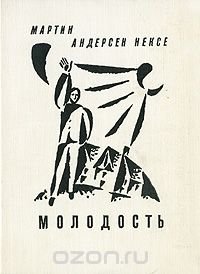Excerpt from The Monthly Cyclop?dia of Practical Medicine, Vol. 8
Though a physiologist, he has always emphasized the need of seeking in pathological states, as well as in the laboratory, the solution of physiological problems. "The question as to whether the gastric glands have likewise a special secretory innervation," wrote Professor Pawlow some years ago, "is now a very old one and has had an interesting career. In this matter physiology stood for a long time in sharp conflict with practical medicine. Physicians bringing forward their observations in proof, had long answered the question in the affirmative, and looked upon the existence of secretory nerves to the stomach as undoubted. They had even come to recognize different morbid conditions of the innervation apparatus. Physiologists, on the other hand, had fruitlessly endeavored for decades to arrive at definite results upon this question. This is a striking, but by no means isolated, instance where the physician gives a more correct verdict concerning physiological processes than the physiologist himself; nor is it indeed strange. The world of pathological phenomena is nothing but an endless series of the most different and unusual combinations of physiological occurrences which never make their appearance in the normal course of life. It is a series of physiological experiments which nature and life institute, often with such an interlinking of events as could never enter into the mind of the present-day physiologist, and which could scarcely be called into existence by means of the technical resources at his command. Clinical observation will consequently always remain a rich mine of physiological facts. It is therefore only perfectly natural that the physiologist should endeavor to maintain a close connection between his science and that of medicine."
The readers of the Monthly Cyclopedia have doubtless recognized that this thought has inspired much of the work submitted in its columns. So clearly does it meet the needs of the moment, that it has been determined to increase the size of the journal in order to develop its field of usefulness in this direction. Beginning with this months issue, therefore, the Monthly Cyclopedia will contain editorials by leading clinicians, pathologists, physiologists, surgeons, etc., in which the practical and experimental branches of medicine will be jointly analyzed. That such distinguished members of the profession as Nicholas Senn, Allen J.Smith, Henry Beates, Jr., James Tyson, Joseph Collins, Ca. Oliver (whose papers appear in this and the next issue) should, from the start, give the plan their active support, is suggestive. It is hoped that it will meet with the approval of our readers.
The editors labors being such as to prohibit his assuming additional duties, he was able, through the kindness of his publishers, to obtain the valued co-operation of his friend, Dr. J.Madison Taylor, whose scholarly attainments and scientific knowledge are well known, and who will have charge of the new department.
Editorials.
The Training Of The Modern Surgeon.
There is no country in the world where surgery has received more attention than in the United States. This fact becomes very apparent in all of our many medical schools, the transactions of our medical societies, and in the current medical literature.
About the Publisher
Forgotten Books publishes hundreds of thousands of rare and classic books. Find more at www.forgottenbooks.com Это и многое другое вы найдете в книге The Monthly Cyclop?dia of Practical Medicine, Vol. 8 (Classic Reprint) (Charles E. De M. Sajous)















